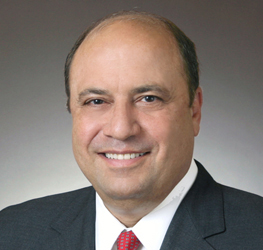State Budget: Tobacco Taxes and Gaming Expansion Appear to Be the Key Budget Issues
The keys to resolving Florida’s budget issues, and to the upcoming negotiations between the state House and Senate, appear to be proposed tobacco tax increases and an expansion of legalized gaming. According to House Majority Leader Adam Hasner (R-Delray Beach), “There are going to be issues that come down to the final moments whether it’s going to be in the budget, obviously cigarette taxes, and obviously the gaming issue.”
On April 7, 2009, the Senate Committee on Ways and Means approved a proposal that would impose a $1-per-pack surcharge on cigarettes and a $1-per-ounce surcharge on cigars and loose tobacco. Florida currently taxes cigarettes at the rate of 34 cents per pack. Only four states have lower cigarette taxes. Florida taxes other tobacco products at the rate of 25-percent of the wholesale cost, except that cigars are not subject to state taxes.
According to official estimates, the Senate plan would generate $1 billion in new revenue for the 2009 – 2010 fiscal year. The Senate plan proposes to dedicate 97.3 percent of the new revenue to Medicaid costs. Some press reports indicated that this approach was intended to make it difficult for Governor Charlie Crist to veto the new tax. Sen. JD Alexander (R-Winter Haven), Chair of the Committee on Ways and Means, conceded that the tobacco tax “may be difficult for the governor to get at.”
Responding to a concern that the higher taxes would be offset by increased purchases of tax-free cigarettes on Indian reservations, the Senate plan also prohibits non-Indians from possessing cigarettes sold on Indian reservations.
The Committee on Ways and Means rebuffed efforts by Sen. Rudy Garcia (R-Miami) to provide an exemption for hand-rolled cigars. Sen. Garcia argued that his proposed exemption would save jobs in Miami and Tampa and promised to bring the issue up again when the tax bill reaches the Senate floor.
The House budget plan does not include the tobacco tax increases.
The two chambers both support some expansion of gaming, but their plans are dramatically different. The Senate proposes to allow a full range of casino games at the casinos operated by the Seminole Tribe of Florida, to allow blackjack at the pari-mutuel facilities in Broward and Miami-Dade counties that currently operate slot machines, and to allow electronic gaming machines at other pari-mutuel facilities.
The House proposal would allow the Seminole Tribe to operate slot machines at all of their facilities, but would prohibit the operation of banked card games such as blackjack. The House plan also would expand authorized activities at pari-mutuel facilities.
The Consensus Revenue Estimating Conference has estimated that the Senate proposal would generate $504 million in new revenue for fiscal year 2009 – 2010 and that the House proposal would generate $257 million.
Property Insurance: “Glide Path” Bills Move Forward While U.S. Department of the Treasury Resists Line of Credit for Florida Hurricane Catastrophe Fund
On April 6, 2009, the Senate Committee on Banking and Insurance approved a proposal by Committee Chair Garrett Richter (R-Naples) that would gradually allow premiums charged by Citizens Property Insurance Corp. to reach actuarial soundness and gradually reduce obligations of the Florida Hurricane Catastrophe Fund.
The Senate proposal would allow Citizens’ rates, currently capped at 2006 levels, to rise by five percent a year until the rates are actuarially sound, with a maximum increase applicable to any Citizens policyholder of 10 percent a year. The plan also would gradually reduce the obligations of the Catastrophe Fund to pre-2007 levels and add a “cash buildup factor” to the premiums that insurers currently pay for coverage from the fund.
Both Citizens and the Catastrophe Fund are heavily dependent on the ability to issue bonds backed up by assessments on property and casualty insurance premiums, including assessments on property, auto, and liability premiums (but excluding workers’ compensation and medical malpractice premiums). Citizens has become the largest property insurer in Florida and one of the 10 largest in the nation. The Catastrophe Fund provides hurricane reinsurance for all residential property insurers in Florida. After the credit markets collapsed in 2008, their ability to meet their obligations has been severely impaired. The Catastrophe Fund estimates that its ability to pay claims in 2009 will be limited to $10.5 billion, even though its contracts with insurers establish its maximum liability at $29 billion.
The Senate bill also allows insurers to buy private reinsurance to cover some of the potential Catastrophe Fund shortfall and to include a portion of those costs in their rates. Insurers are currently prohibited from including the cost of reinsurance that “duplicates” Catastrophe Fund coverage in their rates, regardless of whether or not the Catastrophe Fund is fully able to honor its obligations.
The House Insurance, Business & Financial Affairs Committee approved a similar bill on April 3, 2009.
On April 8, 2009, an aide to U.S. Sen. Bill Nelson announced that the U.S. Department of the Treasury (Treasury) has refused to issue a line of credit to back up the Catastrophe Fund.
Politics: As Gov. Crist Hints at Run for U.S. Senate, Statewide Contests for 2010 Take Shape
Gov. Crist, who has frequently said that he will not make an announcement regarding his plans for 2010 until after the current legislative session, has dropped another hint that he plans to run for the U.S. Senate seat being vacated by Sen. Mel Martinez. On April 8, 2009, Gov. Crist said, “I’ve been looking at the election cycles, and this is an unusual election cycle. Every statewide constitutional office is going to be open — I think, for the only time since the 1885 Constitution was adopted.” In fact, the U.S. Senate, governorship, and all three cabinet seats would be open only if Gov. Crist runs for the U.S. Senate and two cabinet members decide to seek the governorship rather than reelection.
Gov. Crist is considered the prohibitive favorite for the Republican nomination for Senate. U.S. Rep. Kendrick Meek (D-17th Congressional District) and State Sen. Dan Gelber (D-Miami Beach) are announced Democratic candidates.
On April 8, 2009, Republican Department of Agriculture and Consumer Services Commissioner Charles Bronson stated that he was considering a run for governor if Gov. Crist runs for the Senate. Term limits prevent Bronson, who received more votes than any other candidate for state office in 2006, from running for reelection. Other likely Republican candidates are state Attorney General Bill McCollum and former state House Speaker Marco Rubio (R-West Miami). State Chief Financial Officer Alex Sink (who is currently an announced candidate for reelection as CFO) is considered the prohibitive favorite for the Democratic nomination for governor if Gov. Crist enters the Senate race.
U.S. Rep. Adam Putnam (R-12th Congressional District) is an announced candidate for the state agriculture commissioner. State Sen. Dave Aronberg (D-Greenacres) and former state Sen. Rod Smith (D-Alachua) are considered likely candidates for state attorney general.
Public Affairs News Alert is part of our ongoing commitment to providing up-to-the-minute information about pressing concerns or industry issues affecting our clients and our colleagues. If you have any questions about this alert or would like to discuss these topics further, please contact your Foley attorney or any of the following individuals:
|
Marnie George Michael P. Harrell Robert H. Hosay |
Jonathan P. Kilman Thomas J. Maida Leonard E. Schulte |

